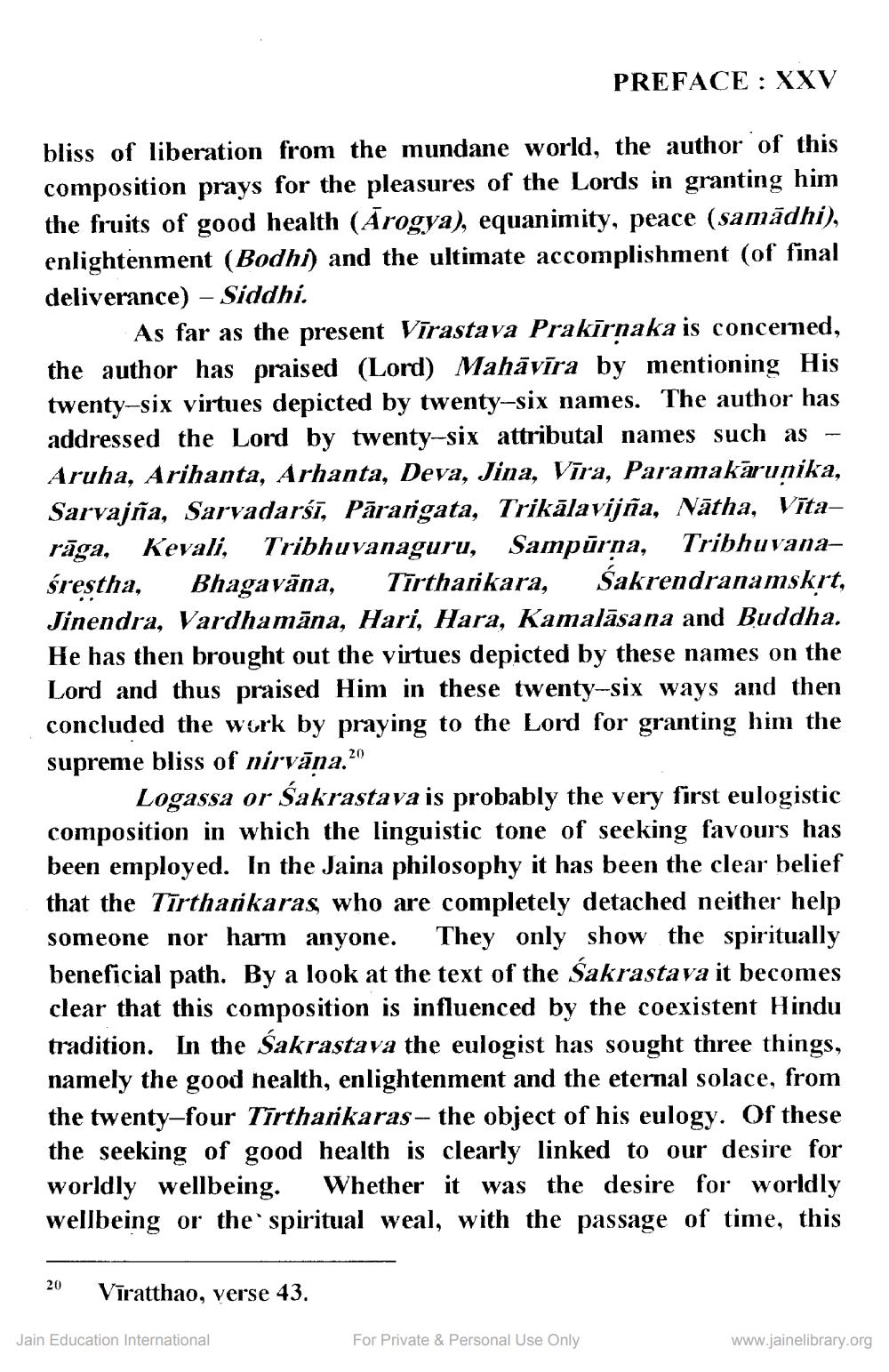________________
PREFACE: XXV
bliss of liberation from the mundane world, the author of this composition prays for the pleasures of the Lords in granting him the fruits of good health (Arogya), equanimity, peace (samadhi), enlightenment (Bodhi) and the ultimate accomplishment (of final deliverance) - Siddhi.
As far as the present Vīrastava Prakirnaka is concerned, the author has praised (Lord) Mahāvīra by mentioning His twenty-six virtues depicted by twenty-six names. The author has addressed the Lord by twenty-six attributal names such as – Aruha, Arihanta, Arhanta, Deva, Jina, Vīra, Paramakārunika, Sarvajña, Sarvadarśī, Pārarigata, Trikālavijña, Nātha, Vītarāga, Kevali, Tribhuvanaguru, Sampūrna, Tribhuvanaśrestha, Bhagavāna, Tīrtharikara, Śakrendranamskrt, Jinendra, Vardhamāna, Hari, Hara, Kamalāsana and Buddha. He has then brought out the virtues depicted by these names on the Lord and thus praised Him in these twenty-six ways and then concluded the work by praying to the Lord for granting him the supreme bliss of nirvana.20
Logassa or Śakrastava is probably the very first eulogistic composition in which the linguistic tone of seeking favours has been employed. In the Jaina philosophy it has been the clear belief that the Tīrtharkaras who are completely detached neither help someone nor harm anyone. They only show the spiritually beneficial path. By a look at the text of the sakrastava it becomes clear that this composition is influenced by the coexistent Hindu tradition. In the Sakrastava the eulogist has sought three things, namely the good health, enlightenment and the eternal solace, from the twenty-four Tīrtharkaras, the object of his eulogy. Of these the seeking of good health is clearly linked to our desire for worldly wellbeing. Whether it was the desire for worldly wellbeing or the spiritual weal, with the passage of time, this
20
Vīratthao, verse 43.
Jain Education International
For Private & Personal Use Only
www.jainelibrary.org




